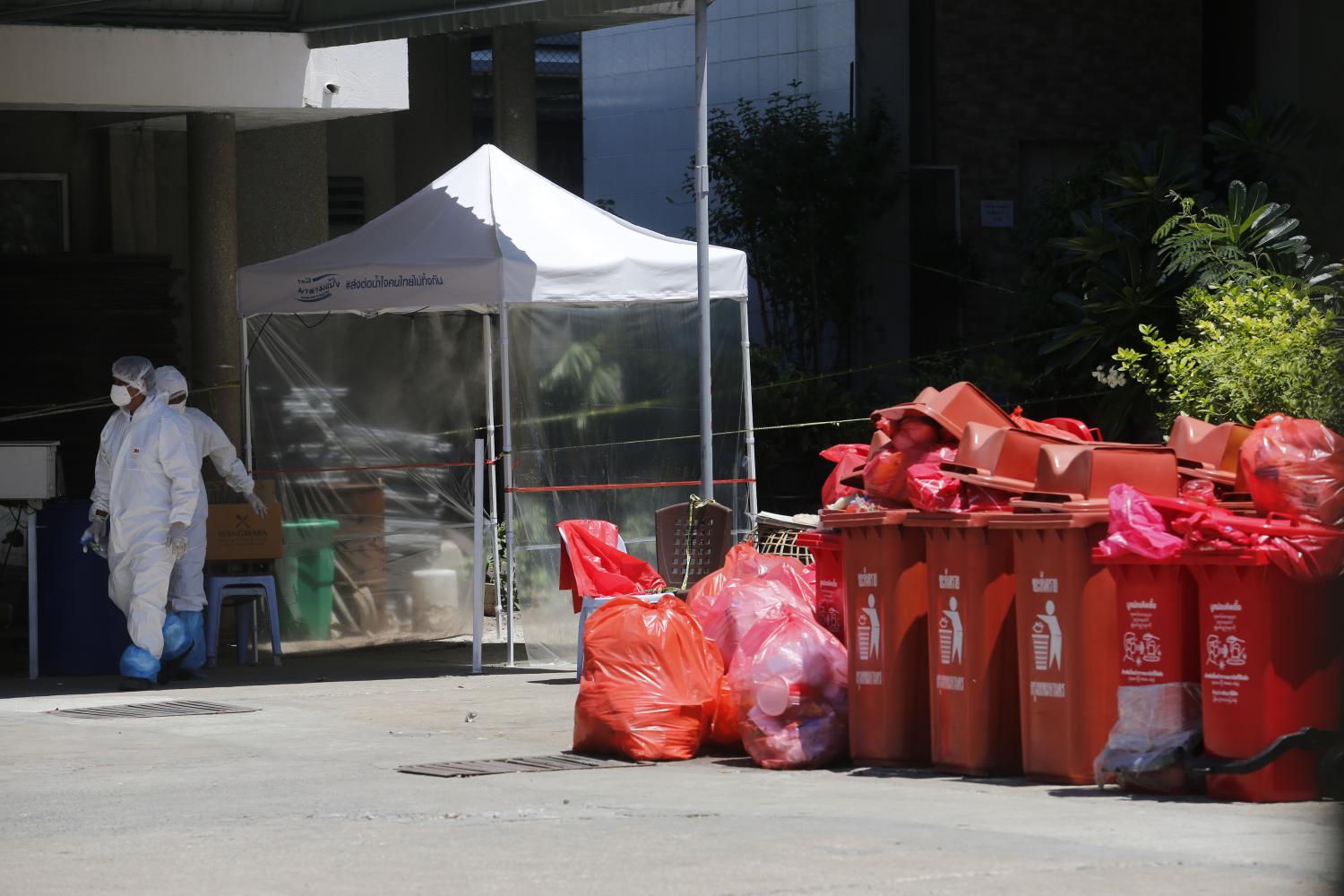
The government's home isolation measures for Covid-19 patients are causing concern over the growing amount of infectious waste they are generating, including discarded face masks and used antigen test kits, as the waste threatens the environment, says the Federation of Thai Industries (FTI).
Serious action to separate infectious waste from general garbage is demanded by the FTI as it prepares to meet government officials, businesspeople and experts on Sept 8 to jointly find ways to cope with the problem, said Apiphop Phungchaikul, vice-chairman of the FTI's Plastic Industry Club.
"Infectious waste is usually dealt with at hospitals, which have good disposal systems," said Mr Apiphop.
"Covid-19 has made this type of garbage a more common sight in homes."
People of all ages are ordered to wear face masks and those at risk of catching the virus are urged to conduct Covid-19 tests using rapid antigen test kits.
The National Health Security Office plans to distribute 8.5 million test kits to at-risk groups, including residents in slum areas and workers in markets.
The government is expected to hand them out starting from Sept 15.
Chulalongkorn University's Veterinary Medical Aquatic Animal Research Centre (VMARC) previously sent a letter to the Plastic Industry Club asking it to help push for proper management of discarded masks.
Some masks found in the water have already started to affect animals.
"Our garbage separation system is ineffective," said Mr Apiphop.
"Some households discard the masks and antigen test kits into red bags, but the waste is eventually mixed with general garbage and they are carried to landfills in Bangkok."
The FTI is proposing a pilot waste management scheme in Bangkok by asking housing estate operators to work with the Bangkok Metropolitan Administration.
Residents in housing estates will be asked to discard infectious waste in red bags, which will be taken by City Hall for proper disposal every 1-2 days, he said.
"Both FTI and the government are worried that infectious waste that is not destroyed in an appropriate way may lead to a new outbreak," said Mr Apiphop.
According to the FTI, participants at the Sept 8 meeting include representatives from VMARC, City Hall, the Housing Business Association and the Condominium Association.